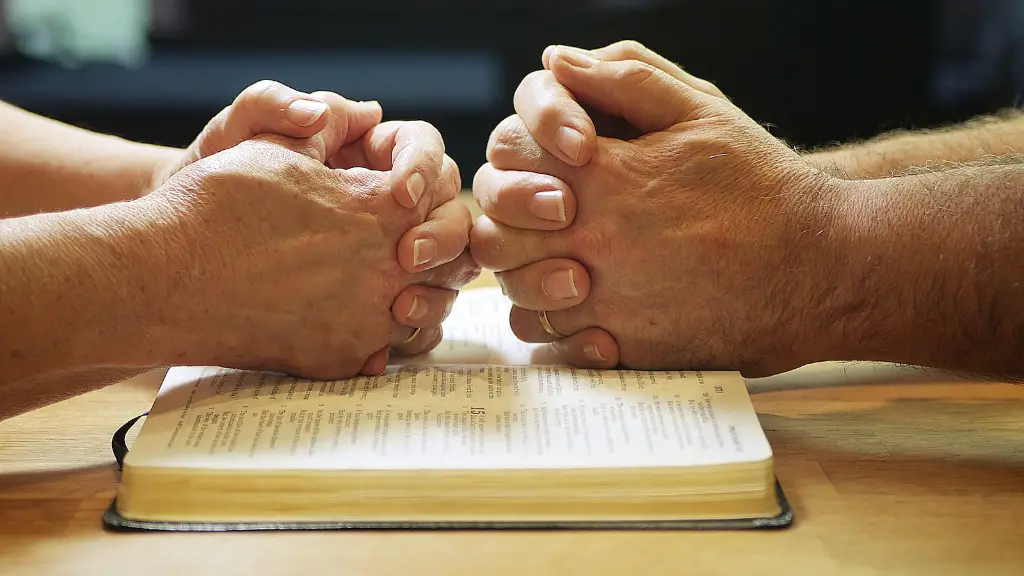Honor in the Bible is discussed in many contexts and can mean different things in different places. For example, in the Old Testament, honor is associated with pleasing God, whereas in the New Testament it is associated with spiritual growth and maturity. On the surface, the Bible paints a picture of the honor God demands for His chosen people, but a closer look shows that honor is an attitude expressed in action.
Biblical scholar James K. A. Smith explains: “Honor is not just an attitude; it is also action. It is not merely a concept; it is a practice. To honor someone is to do them honor—to acknowledge their worth, to recognize their nobility, to esteem them highly. In this way, honor isn’t just a passive response to someone else; it’s an active commitment to them.”
Honor is deeply rooted in the Bible’s ethical teachings, and is emphasized throughout the Old and New Testament. In the Old Testament, it is associated with God’s holy character, His righteousness and His right to rule. In the New Testament, honor is associated with the Christian’s love and gratitude towards God, and their sense of duty towards their neighbor.
The Bible is full of stories of people who honor God and His laws, such as Abraham and Moses. The Scriptures also tell us that when we fail to honor God, we suffer. As Smith wrote: “The stark realization of sin is the dishonoring of God, and the effects of that dishonor ripple outward.”
Another important aspect of honor in the Bible is respect for other people. The Bible instructs us to “give honor to whom honor is due” (Romans 13:7). This means that we should recognize other people’s humanity, achievements and contributions, even when we personally disagree or oppose them. We should treat everyone with dignity, respect and appreciation; listen carefully to what they have to say, and strive to show them kindness.
The Bible also teaches that we should honor those in authority. The Apostle Paul writes in his letter to the Romans: “Let every person be subject to the governing authorities. For there is no authority except from God, and those that exist have been instituted by God. Therefore whoever resists the authorities resists what God has appointed, and those who resist will incur judgment” (Romans 13: 1-2). The Bible does not suggest that we should blindly follow authority, but it does emphasize the importance of respecting and honoring those who exercise it.
In short, honor in the Bible is more than just words and actions, it is an attitude, a lifestyle, and a commitment to show respect to God, to our neighbor, and to those in authority. The Bible encourages us to be humble and gracious in our actions, and to strive to treat others as we ourselves would want to be treated.
Honouring God
When it comes to honour, the Bible emphasises our need to please God first. Passages such as 1 Thessalonians 4:4 feature direct commands to honour God with our lives and our behaviour. Our focus must be to seek out a lifestyle that will be pleasing to our Creator. This honourable pursuit urges us to break away from past bad habits and live a life that is worthy of earning His honour. We must focus on a life of purity, worshipping faithfully and living in obedience to His commandments.
Dedicating ourselves to honouring God must come from our desire to please Him above all else, and without any intention of receiving external honours from people. We must be humble and recognise that everything we do is not in pursuit of worldly attainments but aiming to recognise the sovereignty and glory of our God. Making God’s honour our only aim should encourage us to persevere in all trials, keeping steadfast faith in Him, regardless of how difficult our circumstances become.
We are to honour God with our words and actions according to the psalmist’s call in Psalm 34:2-3: “I will bless the LORD at all times: his praise shall continually be in my mouth. My soul shall make her boast in the LORD: the humble shall hear thereof, and be glad.” To do this, we should strive to stay committed to our values, honour our promises and publicly uphold God’s honor by confessing our faith. We can honour God in tangible ways by giving generously to his work, through tithing and offering. Indeed, giving to God is an act of honouring Him.
Honouring Neighbours
Honouring our neighbours is based on the Golden Rule, Jesus’ call to “love your neighbour as yourself” (Mark 12:31). We are to act honourably towards our neighbours, treating them in the same manner we would wish to be treated. It entails accepting the diversity among us and depending on God to lead us in our dealings with them. Our attitude towards our neighbours should be one of humility, putting our love for them before our differences.
Another way of honouring our neighbours is by loving them unconditionally, even if our neighbours are people we have difficulty connecting with. We show honour to them by showing compassion, extending mercy and being slow to judge. We are also to honour our neighbors by abstaining from gossip and not speaking ill of them in public. Instead, we should offer them encouragement and support in all times, and refrain from taking away the honour they ought to receive.
The Bible also teaches us to keep our promises to others, to be trustworthy by not taking credit for the work of others, and to respect the property and rights of our neighbours. We can honour our neighbours in practical ways such as by providing them with a listening ear, helping them with their daily tasks, and offering words of affirmation. In all, let’s remember to keep our focus on Jesus’ words, “love your neighbour as yourself.”
Honouring Those in Authority
The Bible instructs Christians to honour those in authority and to submit to the governing authorities. We show honour to those in authority by respecting the laws of the land and not taking part in any activities that oppose or disregard government policy. We also demonstrate honour by being respectful of public leaders and taking the time to thank them for their service.
Another way to honour those in authority is by standing for what is right and getting involved in opportunities to improve the community. We honour authority figures when we use our voices, vote, and advocate for what we believe to be right and just. We also honour those in authority when we forgive those who have wronged us and when we admire the accomplishments and sacrifices of others.
Finally, we can honour those in authority by respecting all people, regardless of race, ethnicity, religious belief or social status. To honour those in authority, we must take a stand against bigotry, prejudice and injustice and not be ashamed of doing what we know to be right. This means that we must speak up when we see injustice and not remain apathetic in the face of evil. When we show honour in all these ways, we reflect the character of Christ.
Honouring Ourselves
Honouring ourselves is a difficult but necessary task in following God’s instructions to honour and love our neighbour as ourselves. As we honour other people, it is also important to honour ourselves in the process. This means being kind to ourselves, being mindful of our needs, abstaining from self-destructive behaviour and treating ourselves with the respect and love that every human being deserves.
We honour ourselves when we practice self-care, by engaging in activities such as regular exercise, eating healthy and getting adequate rest. We should also honour who we are and the gifts and personality traits we each possess, appreciating and embracing our uniqueness in Christ. When we honour ourselves, we are able to love others freely, without concern for our own insecurity.
We honour ourselves when we make wise choices and settle for living in peace rather than in turmoil. In short, honouring ourselves is essential in honouring God and others, and should be based on the perfect example set by Jesus — that of self-sacrifice, humility and love.
Honouring the Less Fortunate
Honouring the less fortunate is an act of humility that God asks of us in the Bible. In Matthew 25:40, Jesus said, “Truly, I say to you, as you did it to one of the least of these my brothers, you did it to me.” The Bible calls us to serve our neighbour and to demonstrate mercy and compassion to those in need. We can honour the vulnerable by providing them with food and basic necessities and by offering a listening ear and comfort.
We can also honour the disadvantaged by advocating for the voiceless, speaking up against injustice and inequality, and taking action to promote change. Additionally, we honour the less fortunate when we recognise our own privileges and use our advantages to benefit others. By doing this, we can help to reduce poverty, inequality and marginalisation in society.
Honouring the less fortunate is an act of obedience to God’s command to love one another as He loves us. We can best serve those in need when we look at them with compassion and empathy and strive to meet their needs without judgement. When we support them in this way, we honour them in Jesus’ name.





